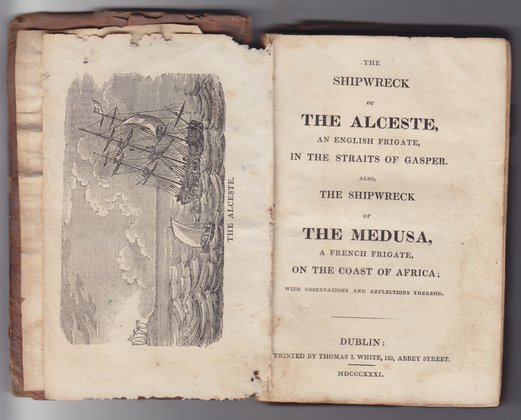Narrative
Home and Away
7. Shipwreck narratives were immensely popular throughout the Romantic period and formed a specialized niche within the travel-writing genre. Frequently published in inexpensive forms, they were directed towards and available to a diverse audience. Their gripping stories of providential escape or lurid tragedy were sensationalist and/or didactic in tone, capitalizing on an appetite for horror while dispensing moral and religious instruction. The editor of the The Shipwreck of the Alceste (Dublin: White, 1831) is typical in his recommendation of shipwreck narratives as both entertaining and morally edifying. “They not only amuse,” he observes, “but their moral instructs” (5). The contrasting accounts of the Alceste and Medusa demonstrate the extent to which these narratives served as vehicles of nationalist sentiment, political commentary, and religious instruction. The estimable behavior of the British crew is contrasted with the disorderly conduct of the French crew; the comparison clearly suggests the superiority of the British nation, while emphasizing the importance of obedience to religious and political authority.














